The Transat: Brooklyn or Bust
Published on May 17th, 2016
(May 17, 2016; Day 16) – Strong headwinds and waves are taking their toll on the remaining boats still racing in The Transat bakerly. Every day, there are new reports of torn sails, damage to boats and exhausted, sleep-deprived sailors having to spend time bailing water – but all the remaining skippers are determined to make it to the race village at Brooklyn Bridge Park.
Erik Nigon on the Multi50 Vers un Monde Sans Sida is the next competitor expected to cross the finish line tomorrow evening. Now battling the changeable conditions of the Gulf Stream, a usually cheery Nigon was this morning feeling the strain.
“The last two days have been particularly complicated,” he said. “I have left the winds of the Azores High and entered into the big breeze of the Gulf Stream. I have not been able to put my pilot on and I am exhausted. I cannot sleep – I have to stay at the helm.”
Pierre Antoine’s Olmix today became the second Multi50 to lose a daggerboard to the concrete waves of the Atlantic. Currently in fourth place, Antoine will continue to the finish line in New York.
In the Class40 fleet, Thibaut Vauchel-Camus on Solidaires en Peloton-Arsep still leads the charge, while third-placed Louis Duc on Carac is piling on the pressure from the south. Still fighting in second position, Phil Sharp on Imerys, is having to sail with the top section of his mainsail ripped in half.
“After some time spent with the boat stopped trying to repair the sail, I realised such an extensive job wouldn’t be possible with the limited materials on board,” he explained. “I’ve rigged up a temporary solution with rope that should hopefully get me to the finish line. It is not pretty or fast, but it should get us there.”
Despite the many hurdles Sharp has had to overcome during the race, the British skipper has never strayed far from the top-three. The latest disaster in the Sharp saga is arguably the most serious yet, but this is a sailor who doesn’t know the meaning of the phrase “give-up.”
“It is hugely disappointing to realise I can’t challenge for the lead anymore in this race,” he said. “But based on the current advantage I have over the other boats, there is still a good fight to try and be on the podium.
“I’m now right back in full racing mode still tying to get the last 0.1 knot out the boat. It has been difficult to digest what has happened, but to finish on the podium would be amazing under the circumstances.”
The first Class40 is expected to arrive in New York on Thursday.
Event website – Tracker – Facebook
About The Transat
Twenty-five boats set sail May 2 2016 on one of the great races in solo sailing, the 3,050-nautical mile passage across the north Atlantic from Plymouth to New York. Alongside 24 competing skippers is a one-off entry by the French racing legend Loick Peyron who is sailing Eric Tabarly’s 44ft wooden ketch Pen Duick II in the same trim as she was when Tabarly raced her to victory in The Transat (then called the OSTAR) in 1964.
The OSTAR (Observer Singlehanded Trans-Atlantic Race) was created in 1960 by a handful of pioneering sailors. The race was organised every four years by the Royal Western Yacht Club (RWYC) from 1960 through to the 2000 event, albeit with a lot of involvement from the French event organiser Pen Duick in the 90s, in order to cater for the demands of the professional campaigns that dominated the event.
After the 2000 edition, OC Sport stepped in to develop the event and acquired the rights to the professional part. OC Sport organised The Transat in 2004 and 2008, the 2012 edition was deferred at the request of IMOCA (the largest competing class).
The RWYC continues to organise a solo transatlantic race for Corinthian and non-professional sailors that is still known as the (O)STAR,. This race usually falls a year after the professional big boat race i.e. 2005, 2009, 2013, 2017. Both the amateur Yacht Club event and The Transat have the right to link to the history of the original race created in 1960, and to the rich history it has produced.
The first race was competed by just a handful of pioneering sailors including Francis Chichester and Blondie Hasler who coined the phrase: “One man, one boat, the ocean.” There has been tragedy, dramatic rescues and exceptional drama since the race began in 1960. Over time The Transat, as it is known today, has evolved and now serves the professional end of offshore sailing. But there are few modern day races that can reflect on such a long and outstanding history.
Monohull IMOCA 60 record: 12 days, 11 hours and 45 minutes set by Loick Peyron (FRA) on board Gitana in 2008. Multihull 60ft record: 8 days, 8 hours, 29 minutes set by Michel Desjoyeaux (FRA) on board Géant in 2004.
Source: The Transat


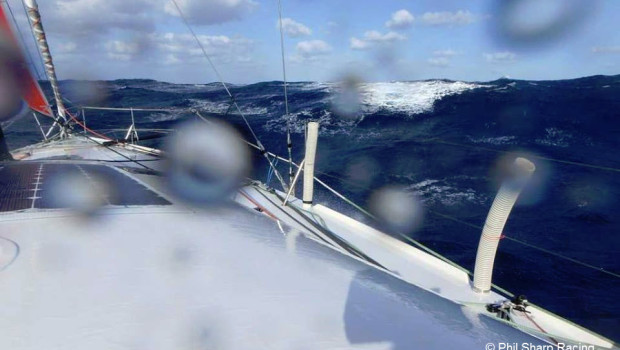

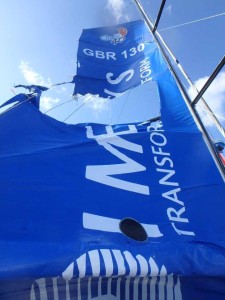
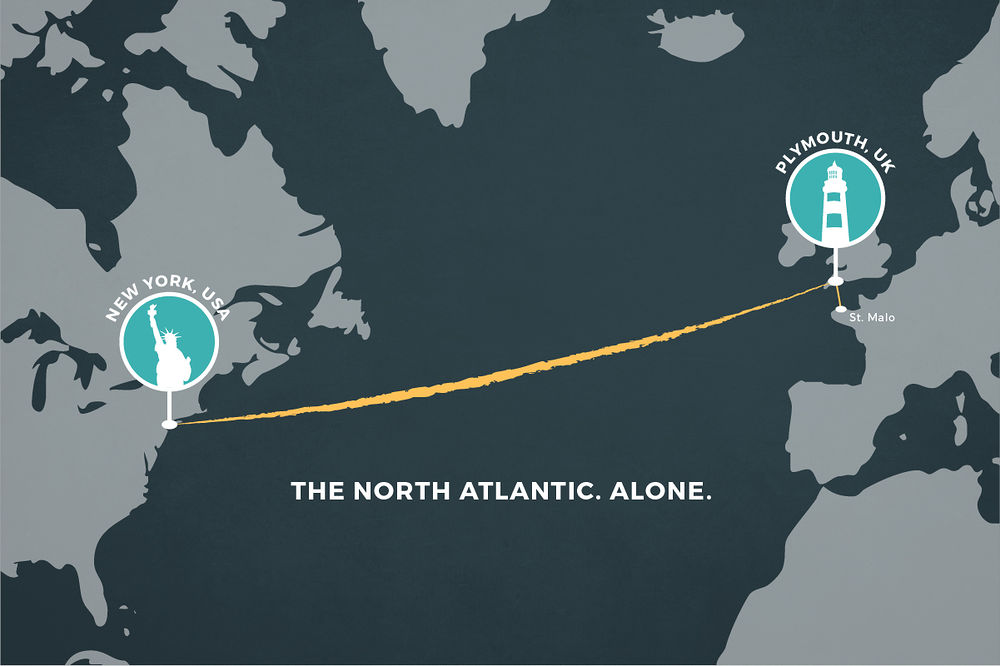

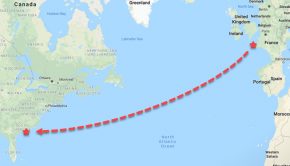
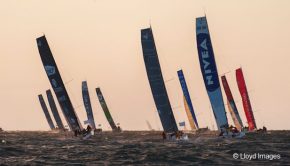
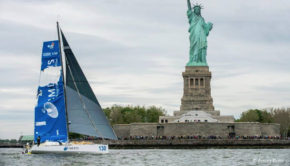
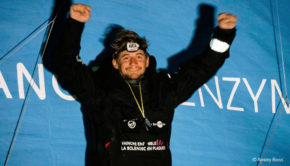
 We’ll keep your information safe.
We’ll keep your information safe.